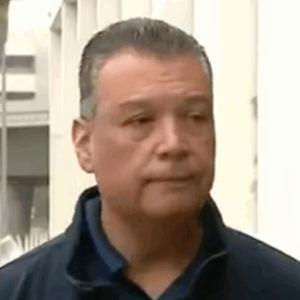The relationship between educators and students in higher education represents one of the most complex and fascinating dynamics in academic environments. These interactions often reveal deeper truths about power structures, intellectual challenges, and the human elements that make education both rewarding and unpredictable. Through examining various classroom scenarios, we can gain valuable insights into how humor, intelligence, and quick thinking play crucial roles in academic discourse.
This exploration delves into the multifaceted nature of professor-student relationships, analyzing how unexpected moments of wit and cleverness can transform traditional power dynamics and create memorable learning experiences. By understanding these interactions, we can better appreciate the psychological and social factors that influence educational outcomes and the development of critical thinking skills.
The Nature of Academic Authority and Challenge
Traditional Power Structures in Higher Education
The academic environment has historically been characterized by clear hierarchical structures, with professors holding positions of authority based on their expertise, experience, and institutional backing. This traditional model assumes that knowledge flows primarily from instructor to student, with limited opportunities for role reversal or challenge to established authority.
However, modern educational theory increasingly recognizes that effective learning often emerges from more dynamic interactions where students feel empowered to question, challenge, and engage critically with both content and instructors. This shift has created interesting tensions between traditional academic hierarchies and more collaborative learning approaches.
The psychology of these relationships is complex, involving factors such as intellectual intimidation, respect for expertise, fear of academic consequences, and the natural human tendency to either conform to or rebel against authority figures. Understanding these dynamics helps explain why certain classroom moments become particularly memorable and impactful.
The Role of Intellectual Courage in Student Development
When students choose to challenge their instructors, they demonstrate a form of intellectual courage that is essential for deep learning and personal growth. This willingness to engage in academic discourse, even when it involves questioning authority, represents a crucial developmental milestone in higher education.
The motivation behind such challenges can vary significantly. Some students may be driven by genuine intellectual curiosity, others by frustration with perceived unfairness, and still others by a desire to test boundaries and assert their own intellectual capabilities. Each of these motivations provides valuable insights into student psychology and educational needs.
Research in educational psychology suggests that students who feel comfortable challenging their instructors in appropriate ways tend to develop stronger critical thinking skills, greater intellectual confidence, and more sophisticated understanding of complex subjects. This finding supports the value of creating classroom environments where respectful intellectual challenge is encouraged and rewarded.
Case Study Analysis: The Logistics Examination Confrontation
Background and Context
Consider the scenario where a student, having failed an examination in “Logistics and Organization,” approaches his professor with what appears to be a straightforward challenge to the instructor’s competence. This interaction illustrates several important aspects of academic dynamics and the psychology of intellectual confrontation.
The student’s opening question—”Sir, do you really understand anything about the subject?”—represents a direct challenge to the professor’s authority and expertise. This type of confrontation requires significant courage from the student, as it risks academic consequences and potential embarrassment. The boldness of this approach suggests either desperation, supreme confidence, or perhaps a calculated strategy based on the student’s assessment of his instructor’s character.
The professor’s response—”Surely I must. Otherwise, I would not be a professor!”—reveals important information about his psychological state and approach to authority. Rather than being offended or defensive, he appears confident enough in his position to engage with the challenge, suggesting either genuine self-assurance or perhaps overconfidence in his institutional authority.
The Strategic Proposition
The student’s subsequent proposal represents a sophisticated form of intellectual gamesmanship. By offering to accept his failing grade if the professor can answer a single question, while demanding an ‘A’ if the professor cannot, the student creates a high-stakes scenario that transforms the traditional evaluation dynamic.
This proposition is psychologically interesting because it reverses the typical power relationship. Suddenly, the professor becomes the one being tested, while the student assumes the role of evaluator. This role reversal can be deeply unsettling for educators who are accustomed to being the sole arbiters of academic success and failure.
The professor’s agreement to these terms suggests several possible psychological factors: confidence in his knowledge, curiosity about the challenge, perhaps some recognition of the student’s creativity, or possibly an underestimation of the difficulty involved in the proposed test.
The Paradox Question and Its Implications
The student’s question—”What is legal, but not logical, logical, but not legal, and neither logical, nor legal?”—represents a sophisticated form of lateral thinking that transcends traditional academic boundaries. This type of question requires not just knowledge of specific subject matter, but the ability to think creatively across multiple domains and identify relationships that may not be immediately apparent.
The structure of this question is particularly clever because it:
- Forces the responder to think beyond conventional academic categories
- Requires integration of legal, logical, and ethical considerations
- Demands creative interpretation of seemingly contradictory requirements
- Tests the ability to apply abstract concepts to specific, personal situations
The professor’s inability to answer this question despite “long and hard consideration” illustrates an important limitation of traditional academic expertise. While he may possess extensive knowledge within his specific field, he struggles with a challenge that requires broader thinking and creative problem-solving skills.
The Revelation and Its Psychological Impact
The eventual answer provided by the professor’s “best student” reveals the deeply personal nature of the riddle. The solution involves the professor’s own life circumstances: his marriage to a much younger woman (legal but not logical), his wife’s affair (logical but not legal), and his decision to give the lover an undeserved grade (neither legal nor logical).
This revelation creates multiple layers of psychological impact:
For the Professor: The realization that his personal life has become the subject of student discussion and judgment can be deeply unsettling. It highlights the reality that academic authority does not extend to personal choices and that students are aware of and form opinions about their instructors’ private lives.
For the Student Community: The incident demonstrates that creative thinking and strategic approach can sometimes succeed where traditional academic performance fails. It also reveals the complex web of relationships and influences that may affect academic evaluations.
For Educational Dynamics: The scenario illustrates how personal and professional boundaries can become blurred in academic settings, and how this blurring can create ethical dilemmas and compromise academic integrity.
Linguistic Wit and Academic Discourse
The Power of Language in Educational Settings
Academic environments are fundamentally linguistic spaces where the mastery and manipulation of language often determine success and status. The ability to use language cleverly, precisely, and persuasively becomes a crucial skill for both educators and students navigating these complex social and intellectual environments.
Consider the scenario of a linguistics professor making a definitive statement about language rules: “In English, a double negative forms a positive. In some languages, though, such as Russian, a double negative is still a negative. However, there is no language wherein a double positive can form a negative.”
This statement represents the kind of authoritative declaration that professors often make, based on their expertise and intended to convey fundamental principles about their subject matter. The confidence with which such statements are delivered reflects the professor’s role as an expert and the expectation that students will accept these pronouncements as accurate and complete.
The Subversive Power of Practical Knowledge
The student’s response—”Yeah, right”—demonstrates how practical, colloquial understanding of language can challenge and even contradict academic theoretical frameworks. This two-word response effectively disproves the professor’s assertion by providing a real-world example of how double positives can indeed form negatives in certain contexts.
The psychological impact of this moment is significant for several reasons:
Immediate Recognition: The humor and accuracy of the response is immediately apparent to everyone in the classroom, creating a shared moment of understanding that temporarily unites students in recognition of the professor’s error.
Role Reversal: A student has successfully corrected the professor using practical knowledge rather than theoretical expertise, demonstrating that academic authority is not absolute and that real-world understanding can sometimes trump formal education.
Linguistic Irony: The correction occurs in a linguistics class, making the professor’s oversight particularly pointed and memorable. The subject matter expertise that should have protected him from this type of error instead amplifies the significance of his mistake.
Implications for Academic Humility
This scenario illustrates the importance of intellectual humility in academic settings. Professors who make absolute statements about their fields of expertise leave themselves vulnerable to contradiction, while those who acknowledge the complexity and evolving nature of knowledge create safer spaces for genuine learning and discovery.
The incident also demonstrates how student engagement can take many forms, from formal academic discourse to informal, spontaneous responses that reveal deeper understanding of subject matter. Effective educators learn to recognize and value these different forms of intellectual contribution.
Social Psychology and Classroom Dynamics
The Function of Humor in Learning Environments
Humor plays a crucial role in educational settings, serving multiple functions that extend far beyond simple entertainment. It can relieve tension, create social bonds, facilitate memory formation, and provide opportunities for creative thinking and problem-solving.
The scenario involving a psychology professor’s request for students who consider themselves “stupid” to stand up illustrates how humor can emerge from unexpected quarters and transform potentially uncomfortable situations into moments of connection and insight.
Analyzing the “Moron” Scenario
When the psychology professor asks, “Would everyone who thinks he or she is stupid please stand up?” he creates a psychologically complex situation. This request serves multiple purposes:
Diagnostic Function: It might be intended to identify students with low self-esteem or confidence issues who could benefit from additional support or encouragement.
Provocative Teaching: The professor may be attempting to provoke discussion about intelligence, self-perception, and social dynamics by creating an uncomfortable moment that forces reflection.
Social Experiment: As a psychology instructor, he might be conducting an impromptu demonstration of group behavior, conformity, and individual courage.
The Student’s Compassionate Response
The student who eventually stands up and explains, “No, sir, I just didn’t want to see you standing there all by yourself,” demonstrates several important psychological and social qualities:
Empathy: The student recognizes the professor’s potentially awkward position and acts to alleviate it, showing emotional intelligence and consideration for others’ feelings.
Social Courage: Standing up in this context requires significant bravery, as it involves making oneself visible and potentially vulnerable to judgment from peers and instructor.
Quick Thinking: The student’s explanation transforms what could have been a moment of personal embarrassment into an act of kindness, demonstrating creative problem-solving and social intelligence.
Humor and Wisdom: The response reveals that the student understands the social dynamics at play and can navigate them with both humor and grace.
Educational Psychology and Learning Outcomes
The Value of Unexpected Teaching Moments
All three scenarios described illustrate how some of the most valuable learning experiences in academic settings emerge from unplanned, spontaneous interactions rather than formal lesson plans. These moments often prove more memorable and impactful than traditional instructional content because they:
Engage Multiple Cognitive Domains: They require students to integrate logical reasoning, emotional intelligence, creative thinking, and social awareness simultaneously.
Create Emotional Resonance: The surprise, humor, and human connection involved in these interactions create strong emotional associations that enhance memory formation and retention.
Demonstrate Real-World Application: These scenarios show how academic concepts apply to actual human situations and relationships, making abstract knowledge more concrete and relevant.
Build Critical Thinking Skills: Students learn to question authority appropriately, think creatively about problem-solving, and consider multiple perspectives on complex issues.
Implications for Pedagogical Practice
Educators can draw several important lessons from these scenarios:
Embrace Vulnerability: Professors who can acknowledge their mistakes and limitations create more authentic learning environments where students feel safer to take intellectual risks.
Value Different Forms of Intelligence: Recognizing that students may possess insights and knowledge that complement or even exceed formal academic training helps create more inclusive and effective learning communities.
Use Humor Appropriately: Well-placed humor can enhance learning, but educators must be sensitive to context and ensure that humor serves educational rather than exclusionary purposes.
Encourage Respectful Challenge: Creating classroom cultures where students feel empowered to question and challenge ideas (including those of the instructor) promotes deeper learning and intellectual development.






